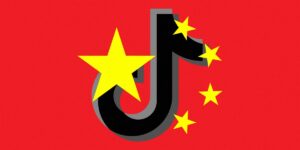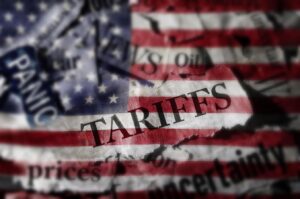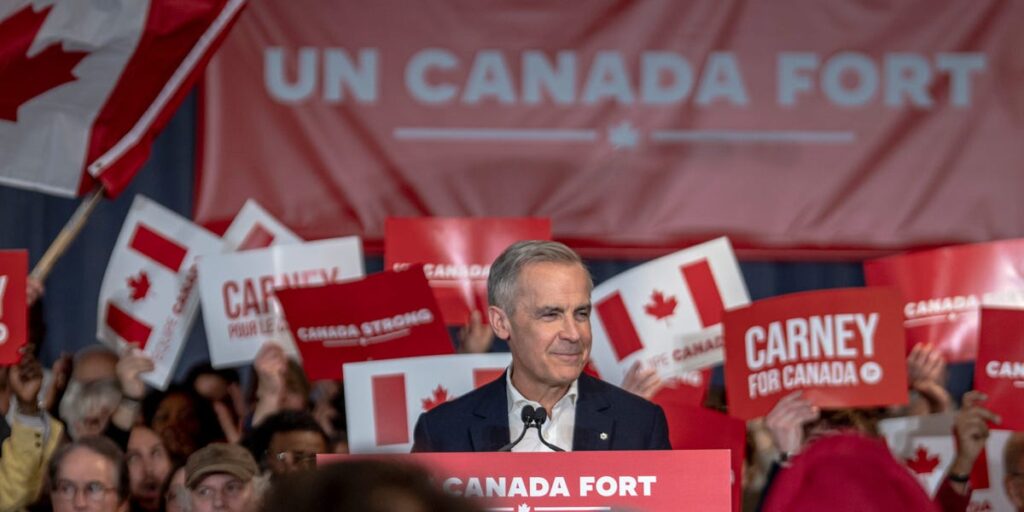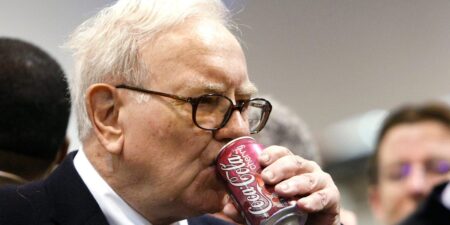World leaders are reacting to President Donald Trump’s “Liberation Day” tariffs, which saw the US imposing a 10% baseline tariff on all countries.
“April 2, 2025, will forever be remembered as the day American industry was reborn, the day America’s destiny was reclaimed, and the day that we began to make America wealthy again,” Trump said in his tariff announcement on Wednesday.
Some countries were hit harder than others. The US imposed a 46% tariff on Vietnam, a 20% tariff on the European Union, and a 32% tariff on Taiwan.
Trump did not increase tariffs on Canada and Mexico, keeping them consistent at 25%. China, however, was hit with an additional 34% tariff, bringing its total to 54%.
World leaders have called the tariffs unwarranted and regrettable and are urging Trump to reconsider or provide exemptions.
Meanwhile, the US treasury secretary, Scott Bessent, said countries should refrain from imposing retaliatory tariffs. He told Bloomberg on Wednesday that without retaliatory measures, the April 2 tariffs would remain “the high end of the number.”
Speaking to CNN, Bessent said his advice for other countries is to “sit back” and “take a deep breath.”
“Let’s see where this goes because if you retaliate, that’s how we get escalation,” Bessent said.
Australia
Australia’s prime minister, Anthony Albanese, said the tariffs were not unexpected but “totally unwarranted.” Australia was hit with a 10% tariff.
“The administration’s tariffs have no basis in logic and they go against the basis of our two nations’ partnership. This is not the act of a friend,” Albanese said in a video on X.
Our Government will always stand up for Australia. These are uncertain times – but all Australians can be certain of this: we will always stand up for Australian jobs, Australian industry, Australian consumers and Australian values. These tariffs are not unexpected, but they… pic.twitter.com/bXaFTcvnN8
— Anthony Albanese (@AlboMP) April 2, 2025
However, he added that Australia would not impose reciprocal tariffs.
“We will not join a race to the bottom that leads to higher prices and slower growth,” Albanese said.
Canada
Canada’s prime minister, Mark Carney, responded to the tariffs in a Wednesday post on X, saying Canada would “fight these tariffs with countermeasures.”
“We are going to protect our workers, and we are going to build the strongest economy in the G7. In a crisis, it’s important to come together, and it’s essential to act with purpose and with force, and that’s what we will do,” Carney said.
China
China’s commerce ministry has responded to Trump’s additional 34% tariffs, which piled onto the existing 20% levy imposed in earlier months.
The ministry said China will “resolutely take countermeasures to safeguard its own rights and interests” — but as of press time, China has not unleashed retaliatory tariffs.
“Historical evidence shows that increasing tariffs does not solve America’s problems. They instead harm America’s interests and threaten global economic development and supply chain stability,” the commerce ministry’s statement read.
“Trade wars have no winners, and protectionism has no way out. The Chinese side urges the US to immediately lift its unilateral tariff measures and properly resolve differences with trading partners through equal dialogue,” it added.
Trump first imposed a 10% tariff on Chinese goods in February before doubling them to 20% last month. While on the campaign trail, Trump said he would impose tariffs of more than 60% on Chinese goods if elected.
On both occasions, China was quick to respond to Trump’s tariffs. In February, China imposed a 10% tariff on crude oil and agricultural equipment and a 15% tariff on coal and liquefied natural gas. Then, in March, China introduced a 10% tariff on US soybeans, pork, and beef imports, as well as a 15% tariff on chicken and cotton imports.
European Union
The European Commission’s president, Ursula von der Leyen, said in a Wednesday statement on X that Trump’s tariffs are a “major blow to the world economy” with “dire” consequences for millions of people.
The universal tariffs announced by the US are a major blow to businesses and consumers worldwide.
Europe is prepared to respond.
We’ll always protect our interests and values.
We’re also ready to engage.And to go from confrontation to negotiation ↓ https://t.co/WbXqsN4ZX7
— Ursula von der Leyen (@vonderleyen) April 3, 2025
“At the same time, we are prepared to respond. We are already finalizing the first package of countermeasures in response to tariffs on steel, and we’re now preparing for further countermeasures to protect our interests and our businesses,” she added.
Italy
Italy’s prime minister, Giorgia Meloni, said in a Facebook post on Wednesday that US tariffs on the European Union were wrong and do not “suit any party.”
“We will do everything we can to work a deal with the United States, aiming to prevent a trade war that would inevitably weaken the West in favor of other global actors,” Meloni said.
But Italy will “act in the interests of Italy and its economy,” she added.
Japan
Japan was hit with a 24% tariff — and its trade minister, Yoji Muto, called the measure “extremely regrettable.'”
Muto said at a press conference in Tokyo that the country will “continue to urge the US to exempt Japan from these tariffs.”
Muto said he spoke to Commerce Secretary Howard Lutnick before the tariffs were announced, where he explained how Trump’s measures would “adversely affect the US economy by undermining the ability of Japanese companies to invest.”
“We discussed frankly how to pursue cooperation in the interest of both Japan and the United States in a way that does not rely on tariffs,” Muto said.
Japan’s chief cabinet secretary, Yoshimasa Hayashi, said the government will continue to examine “the content of these measures and their impact on Japan.”
“We believe that the recent measures and other broad trade restrictions imposed by the US government could have a significant impact on economic relations between Japan and the US, and ultimately on the global economy and the multilateral trading system as a whole,” Hayashi said.
Read the full article here
















